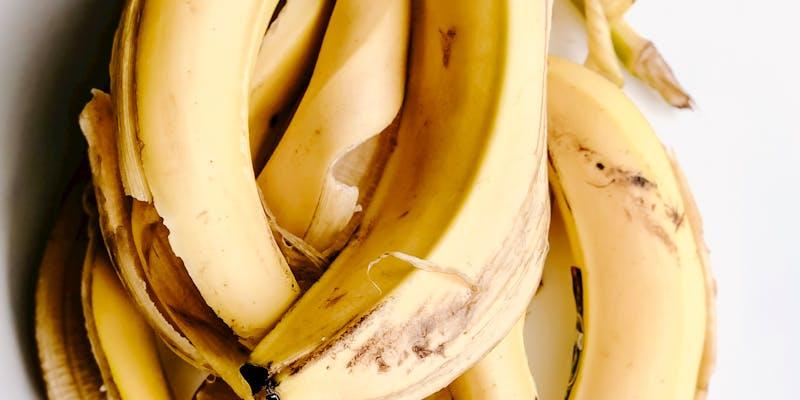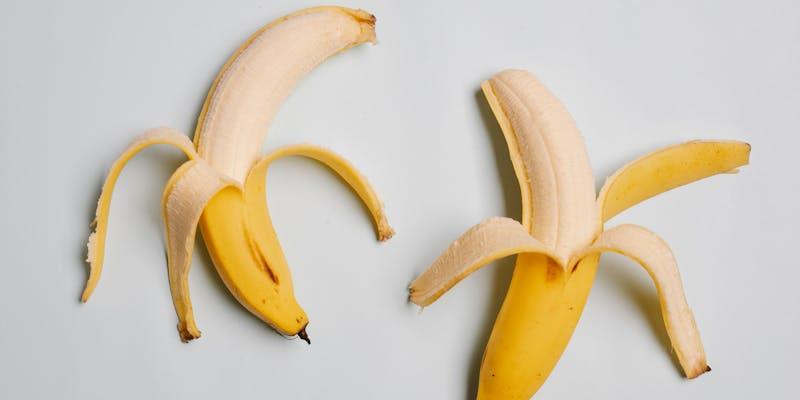Is There Any Evidence That Banana Peels Reduce Psoriasis Symptoms?
Mar 02, 2024 By Madison Evans
Since a specialist prescribed banana peels to treat psoriasis, the remedy acquired popularity on TikTok. Find out whether bananas may treat your lesions scientifically before using them.
Psoriasis causes inflammation. It affects more than the skin and reacts to systemic and topical therapy. Nutrients in a banana may reduce inflammation and antioxidants. How eating or applying bananas helps psoriasis is uncertain. Few scientific studies exist, and most claims of its efficacy are anecdotal or spread through mouth.
Psoriasis
Psoriasis is a persistent autoimmune skin condition that causes red and itchy plaques on various body parts. In psoriasis, the immune system attacks itself due to immunological malfunction. Genetics, medicines, stress, and smoking can cause psoriasis.
Can A Banana Peel Help?

Conventional therapy can manage psoriasis for individuals. Others may not react well to therapy. Some severe psoriasis patients seek alternative or complementary treatments. Bananas may be a supplemental therapy, but little scientific proof exists.
Banana advocates say eating protein in a banana and applying the peel to skin sores helps relieve symptoms.
Banana peels were examined for pimples vulgarise anti-inflammatory and antibacterial properties in 2023. In vivo, animal studies found out banana peel extract's anti-inflammatory benefits may additionally assist:
- Inhibiting nodule development
- Halt bacteria growth
- Reducing proinflammatory cytokines
In vivo, studies in rats and banana peel extract's effects on acne vulgaris prevent generalizations about banana peel usage in psoriasis. The finding is interesting for psoriasis since proinflammatory cytokines are involved. Many psoriasis therapies target inflammatory cytokines.
This does not mean banana peels will work, but it may be worth investigating. No research has directly examined using banana peels to treat psoriasis lesions. Banana peel suggestions are anecdotal. A dermatologist supporting the therapy on TikTok is no substitute for well-structured trials involving a broad population to assess its efficacy and safety.
The banana peel contains 40 chemicals that may enhance health, but how they treat psoriasis is uncertain. Variety, growing practices, and maturity impact accessible chemicals. Consult a doctor before applying banana peels to active psoriasis spots. Tell them why you want to test it. Based on your health history, they may recommend additional ointments or lotions.
Method of Treating Psoriasis With Banana Peel
Antioxidant-rich bananas help psoriasis. Additionally, nutrients in a banana can relieve psoriasis-related itching by providing moisture. According to research, banana peel compounds may have health benefits after extraction. The easiest way to deal with affected areas is to scrape off the inner skin of a banana peel, mix it with oatmeal, follow it, lightly rub it in, and leave it on for 10-15 mins. They note that several factors affect these substances' potency, including:
- Banana variety
- Growing conditions
- Ripe, overripe, or underripe banana
Thus, while applying a banana peel to a psoriasis patch may not be harmful, it may not help. Therefore, consult a doctor before using a banana peel to an aggressive psoriasis spot.
Bananas And Oxygen Stress

According to a new study, unripe bananas may help manage psoriasis. Oxidative stress—a free radical-antioxidant imbalance—may worsen psoriasis. According to research, protein in a banana has more antioxidants than ripe or overripe bananas. Despite not examining psoriasis, this study showed bananas' potential to fight oxidative stress.
Bananas include vitamin C, E, and phenolic components, neutralizing free radicals and decreasing cell oxidative damage. Bananas reduce oxidative stress, which may reduce psoriasis symptoms like inflammation.
Bananas and banana peels have not been directly studied for psoriasis therapy. Bananas for psoriasis treatment require more study to determine efficacy and safety.
Other Home Remedies for Treating Psoriasis
Many existing home remedies could be beneficial. Some options to consider are:
- Take a cool or warm bath.
- Moisturize regularly.
- Stop smoking if appropriate and avoid drinking.
- Create a moist environment using a humidifier, taking precautions to prevent skin damage.
- Keep a healthy weight by recognizing and avoiding triggers.
- Consider joining a support group, exercising regularly, and considering phototherapy with your doctor.
Foods to Avoid With Psoriasis
A variety of inflammatory foods might worsen psoriasis symptoms. A few of those foods to avoid are:
Dairy Products
The high-fat content material of numerous dairy products can be irritating. Some people have trouble digesting casein, a protein in dairy products. Those who can't digest lactose lack lactase. Chronic stomach discomfort from numerous issues may worsen inflammation. Some humans get comfort from their symptoms of psoriasis by removing dairy from their weight loss plan.
Products With Refined Carbs
Processed carbs include white bread, rice, pasta, pastries, and morning cereals. They lack fiber and entire grains and are high in sugar, which can raise blood sugar. Inflammatory blood molecules called advanced glycation end products are increased by refined carbs.
Foods with Trans And Saturated Fats
The fats in red meat, cheese, fried food, margarine, fast food, and many processed snacks cause inflammation. These fats raise LDL, or "bad cholesterol." Studies reveal that increased body fat may cause or aggravate psoriasis.
Foods With Added Sugar
Soda, fruit drinks, candies, baked products, and other sweets include added sugars, not fruit sugars. Our bodies manufacture insulin to metabolize sugar, but too much additional sugar stores energy in fat cells and inflames them. Sugary foods can also raise cytokine levels. Other research implies that artificial sweeteners like aspartame may cause persistent inflammation.
Gluten-Containing Foods
Researchers say psoriasis increases the risk of celiac disease. Gluten, a protein in wheat and other grains, causes celiac disease by triggering an inflammatory response that attacks small intestinal tissues. Celiac illness requires gluten elimination. However, some non-celiacs have found that lowering gluten and replacing it with banana peels reduces psoriasis flare-ups.
Conclusion
Fruits like bananas are nutritious. Their peels and fruit are rich in nutrients and chemicals, making them a desirable diet complement. There is minimal scientific evidence that nutrients in a banana or their peels may heal psoriasis—however, home remedies, including cleanliness, can supplement medical therapies. Avoiding dairy, processed grains, trans and saturated fats, added sweets, and gluten may lessen symptoms and flare-ups. Talk to a doctor about your worries and reasons for rubbing banana peels on your skin. They can assess your symptoms and recommend bananas or other therapies.






